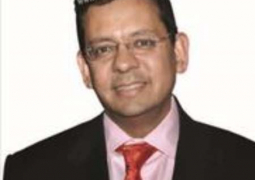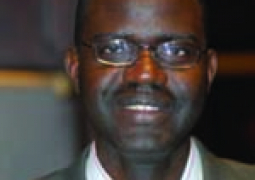"In the 21st century, capable, reliable, and transparent institutions are the key to success - strong parliaments; honest police forces; independent judges; an independent press; a vibrant private sector; a civil society. Those are the things that give life to democracy, because that is what matters in people's everyday lives... Africa doesn't need strongmen, it needs strong institutions. ". President Obama
Only the National Assembly consist of elected representatives coming from every part of the
A key function of the legislature is to act as a forum for the representatives of the people to articulate the needs and aspirations of their constituencies, express their grievances and anxieties, demand that wrongs done by the executive be rectified, debate public issues and policy options and take decisions in the interests and welfare of all the people in the country. The legislature has several important functions. It enacts laws, rules and regulations and appropriates revenue, allocates resources and oversees public expenditure. The legislature is supported by a system of standing and select committees. Through its Public Accounts Committees, the legislature ensures that budgetary allocations have been utilized according to the established procedures, for the intended purposes and in the most cost effective manner, accountable and transparent. The legislature uses other Committees-Select and Standing Committees-to debate specific issues related to economic, social, political or any other matters of national interests. It is thus in these committees that most of the checking and balancing activities of the legislature are carried out.
Such a system of 'checks and balances' is likely to assure serious deliberations over policy matters and presumably will lead to decisions that address the interests and welfare of the people. However in assessing the role of the legislature in checking and balancing the executive a distinction ought to be made between constitutional prescriptions and political realities. The 1997 Constitution stipulates the separation of powers functionally dispersing the three branches of government, but political realities on the ground have watered down or diffused the independence of the National Assembly. This is what has happened in the
It must emphasized here that to effectively check and balance the executive, the legislature needs capacity, competence and independence. In terms of capacity, research facilities are highly important for helping legislators better understand issues that come before them. Competence comes in the form of information, knowledge and experience. Without capacity and competence, the legislature risks becoming dependent on the executive. But many legislatures in
Legislative independence means that it is-and is perceived to be-free from interference from the executive, or civil society and private sector influences, including organised religious groups, ethnic organisations and big business, as well as forces from outside the country. An independent legislature is able to debate and pass laws and approve programmes that the legislators judge to be beneficial to the country as a whole. When the legislature lacks independence, its capacity to check and balance the executive is compromised, and its role in representing the people effectively is diminished.
Furthermore, issues of integrity and corruption status are necessary foundations for building moral authority and credibility. The perception of a legislature's integrity is critical for its own legitimacy and respect from the citizens. For example, the case of the Kenyan legislators to vote unanimously for large increases in remuneration and benefits for themselves in total disregard of both the economic situation of the country and without considering the interests of other sectors of society undermined the respectability of the legislature.
In terms of enacting laws, debating national issues, checking the activities of the government and in general promoting the welfare of the people, these duties and obligations are rarely performed with efficiency and effectiveness in many African Parliaments, and rarely are the parliamentary debates informative and responsive to the needs of the people. The relative weakness may be attributed to strong executive power.
In a relatively strong, parliamentary democracy like
Almami Fanding Taal is Legal Practitioner with special interests in Human Rights, Media Laws, and Good Governance & Institutional Development



